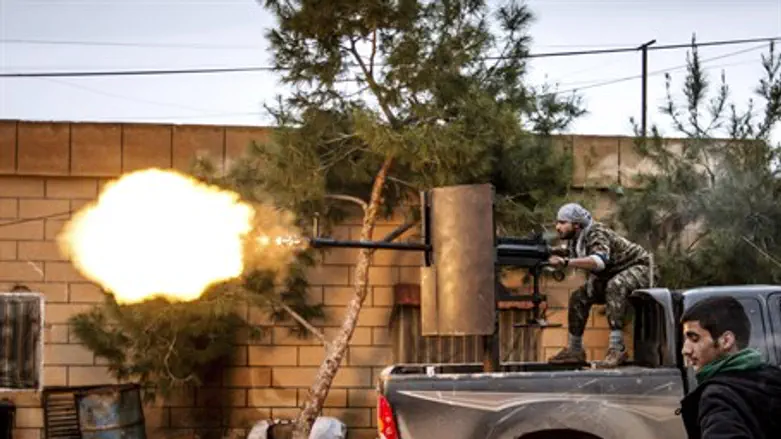
Retired general John Allen, the US special envoy for the coalition against Islamic State (ISIS), admitted Tuesday that some of Washington's allies in the war with ISIS would be unnerved by Tuesday's nuclear deal between the West and Iran.
"For many of the members of the coalition, Iran has been, is and probably will remain one of the principal sources of threat to their national security," he said.
"I won't speculate on the outcome of the announcement made this morning with respect to whether it will fundamentally change Iran's behavior, but it's of course a very important question for all" coalition members, Allen said.
The United States does not support the establishment of an autonomous Kurdish entity in northern Syria, Allen added.
Kurdish fighters have made gains in war-torn Syria against ISIS, notably in land close to the border in the north with Turkey, triggering concern in Ankara that the Kurds might attempt to establish their own state in Syria.
"We don't support, and I don't think the Kurds support in northern Syria, a separate governmental entity," said the envoy.
"It is important that a partner that has ultimately been enabled to defeat Daesh (ISIS) does not become an occupying force," Allen told a Washington think tank.
America's stance may partially explain why US President Barack Obama has been blocking weapons transfers to the Kurds, despite the fact that they have proven the most effective in battling ISIS.
Turkey has fought a 31-year insurgency in its southeast by the Kurdistan Workers' Party (PKK), which Ankara claims is closely linked to the main Syrian Kurdish People's Protection Units (YPG) militia.
AFP contributed to this report.
